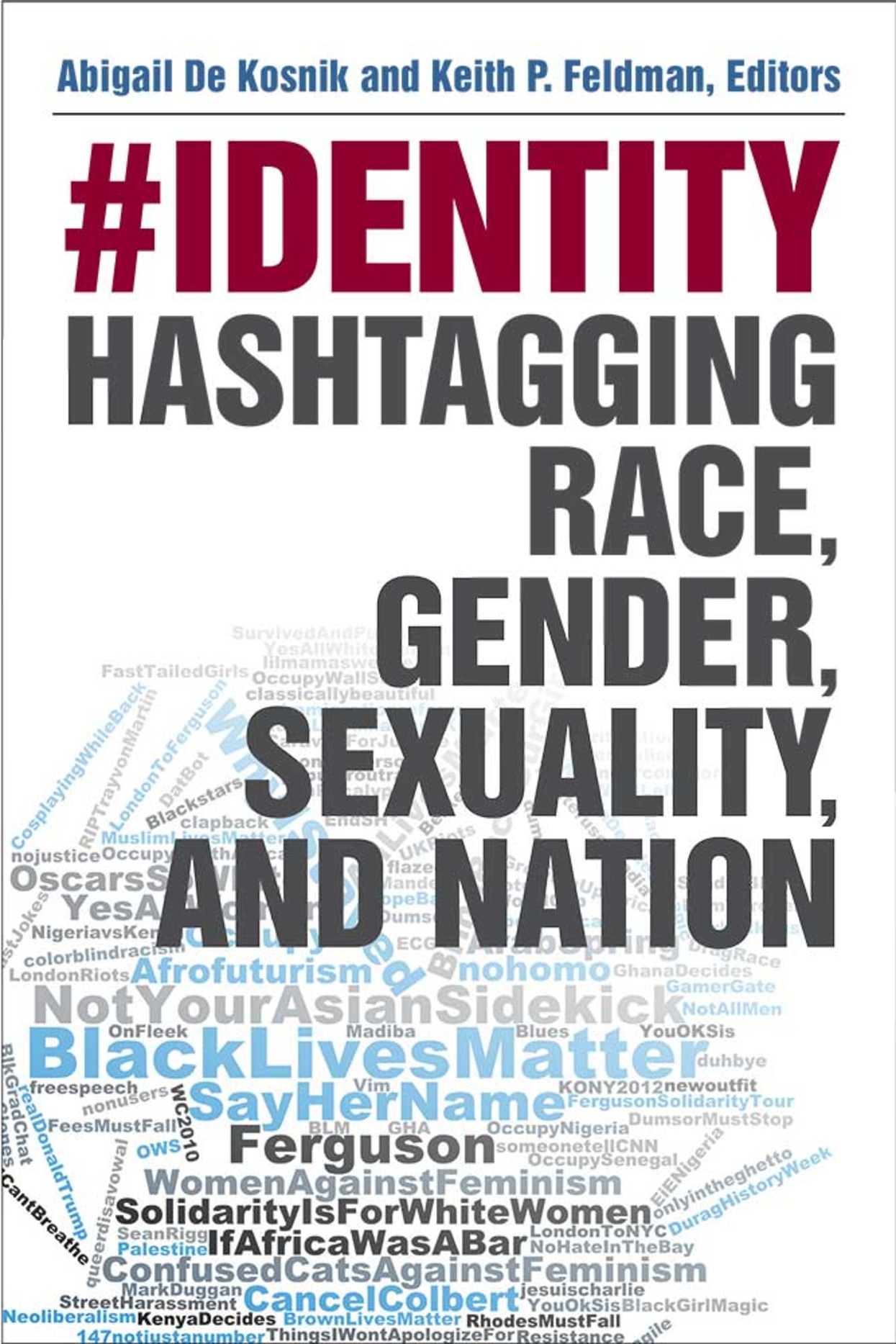#Identity: Hashtagging Race, Gender, Sexuality, and Nation Published

We're thrilled to announce that #Identity: Hashtagging Race, Gender, Sexuality, and Nation is now available via Michigan University Press with an open access version forthcoming!
Co-edited by Abigail De Kosnik and Keith Feldman, #Identity features essays from the incredible Color of New Media Working Group, including articles by our own Malika Imhotep, Grace Gipson, Lyndsey Ogle, Renée Pastel, Kyle Booten, Bonnie Ruberg, and Reginold Royston.
You can also purchase this exciting work via Amazon.
From the description:
Since its launch in 2006, Twitter has served as a major platform for political performance, social justice activism, and large-scale public debates over race, ethnicity, gender, sexuality, and nationality. It has empowered minoritarian groups to organize protests, articulate often-underrepresented perspectives, and form community. It has also spread hashtags that have been used to bully and silence women, people of color, and LGBTQ people.
#identity is among the first scholarly books to address the positive and negative effects of Twitter on our contemporary world. Hailing from diverse scholarly fields, all contributors are affiliated with The Color of New Media, a scholarly collective based at the University of California, Berkeley. The Color of New Media explores the intersections of new media studies, critical race theory, gender and women’s studies, and postcolonial studies. The essays in #identity consider topics such as the social justice movements organized through #BlackLivesMatter, #Ferguson, and #SayHerName; the controversies around #WhyIStayed and #CancelColbert; Twitter use in India and Africa; the integration of hashtags such as #nohomo and #onfleek that have become part of everyday online vernacular; and other ways in which Twitter has been used by, for, and against women, people of color, LGBTQ, and Global South communities. Collectively, the essays in this volume offer a critically interdisciplinary view of how and why social media has been at the heart of US and global political discourse for over a decade.
Here are some of the highlights from the BCNM community:
Abigail De Kosnik: Is Twitter a Stage?: Theories of Social Media Platforms as Performance Spaces
-- and #CancelColbert: Popular Outrage, Divo Citizenship, and Digital Political Performativity
Malika Imhotep: #OnFleek: Authorship, Interpellation, and the Black Femme Prowess of Black Twitter
Grace Gipson: Creating and Imagining Black Futures through Afrofuturism
Lyndsey Ogle: Confused Cats and Postfeminist Performance
Renée Pastel: Hashtag Television: On-Screen Branding, SecondScreen Viewing, and Emerging Modes of Television Audience Interaction
Kyle Booten: Hashtag Rhetoric: #AllLivesMatter and the Production of Post-Racial Affect
Bonnie Ruberg: #nohomo: Homophobic Twitter Hashtags, Straight Masculinity, and Networks of Queer Disavowal
Reginold a. Royston and Krystal Strong: Reterritorializing Twitter: African Moments, 2010–2015
